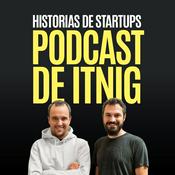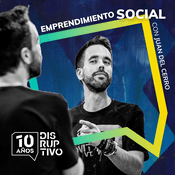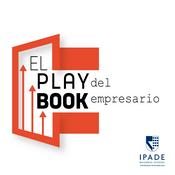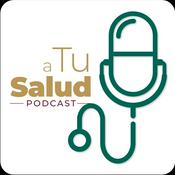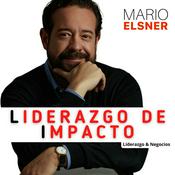GovComms: The Future of Government Communication
contentgroup
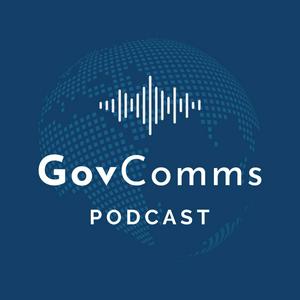
Último episodio
358 episodios
- Governments are full of data, but it’s insight that drives real change.
In this episode of GovComms, David Pembroke joins Garrett Tyler-Parker, Director of Analysis and Insights at Tourism Research Australia.
Together, they break down how good research transforms spreadsheets into strategy.
Garrett shares why formative research should shape a campaign from the start, how human stories give meaning to dashboards, and what’s changing fast as mobility data and AI enter the mix.
Find out how to make evidence easier to understand, harder to ignore, and far more useful for the people who need to act on it.
Key Points
Insight beats information: government (and tourism) are awash with data, but the real job is turning the ‘what’ into the ‘so what’
Start research early: use formative research to shape the campaign, rather than using it to evaluate after
Blend big data with human context: numbers show patterns, but storytelling makes evidence more memorable
Hosted on Acast. See acast.com/privacy for more information. - As we step into 2026, now's the time to ensure everyone's voice is heard.
In this episode of GovComms, we revisit host David Pembroke's conversation with Richard Etienne: internal communications expert, author of The Introvert’s Survival Guide, and founder of The Introvert Space. Together, they explore how introverts can lead, influence, and thrive in workplaces that often reward volume over value.
From overcoming self-doubt to navigating hybrid work, Richard shares powerful, practical strategies to help introverts find their voice without having to shout. He also offers advice for leaders on how to build inclusive teams where every personality type can succeed.
Whether you identify as an introvert, manage one, or simply want to create more inclusive and effective teams, this episode is packed with eye-opening insights and actionable tips.
Discussed in this episode:
Why introverts often go unheard and how to change that
How to build your personal brand without self-promotion
The hidden strengths introverts bring to leadership
What Theresa May taught Richard about quiet influence at the top
Show notes:
The Introvert Space | Richard Etienne
The Introvert’s Survival Guide | Richard Etienne
Quiet | Susan Cain
Blog | GovComms Podcast
Hosted on Acast. See acast.com/privacy for more information. - In an era of constant disruption, government communicators are being asked to lead without all the answers.
In this episode of GovComms, David Pembroke is joined by leadership experts Dr Marianne Broadbent and Adam Kyriacou to explore how communications teams can navigate AI and rising expectations, whilst building trust and impact.
It’s an insightful discussion revealing why comms professionals are no longer at the ‘end of the line’, but rather central figures in enterprise performance.
Join David, Marianne and Adam as they pull back the curtain on how to lead in the face of transformation.
Discussed in this Episode
How to integrate AI responsibly while maintaining a human-centred approach
Why trust, purpose, and psychological safety are now core leadership capabilities in the public sector
Practical ways comms teams can support senior leaders and build public trust
Hosted on Acast. See acast.com/privacy for more information. EP#186: Stop talking, start listening — the secret to better government communication
18/11/2025 | 46 minWhat if better communication starts with listening, not telling?
In this episode of GovComms, host David Pembroke speaks with Natasha Plowman: a communications strategist, advisor, and founder of Spinning Red. Together they explore how listening, empathy, and authentic storytelling can transform the way governments engage citizens.
From unpacking the ineffectiveness of the old ‘broadcast’ model to examining the use of buzzwords in sustainability conversations, Natasha urges listeners to imbue their stories with honesty, empathy, and curiosity.
In a world where government communicators are facing rapid transformation, this episode offers a timely reminder. Meaningful change begins with understanding your audience — not just speaking louder.
DISCUSSED IN THIS EPISODE
How listening creates more effective and trusted communication
Ways to communicate across five generations in the workplace
How storytelling connects people and drives understanding
Why transparency builds credibility during complex change
How curiosity and self-awareness improve leadership communication
SHOW NOTES
Spinning Red | Natasha Plowman
Break the Silence Collective | Natasha Plowman
Emily’s List | Emily’s List Australia
Higher Ground | Alison Taylor
Blog | GovComms Podcast
LinkedIn | GovComms
Hosted on Acast. See acast.com/privacy for more information.- What happens when authenticity becomes your greatest communication strategy?
In this episode of GovComms, host David Pembroke speaks with Oluchi Ezeugo, a leading corporate communications professional from Lagos, Nigeria, who’s helped organisations across Africa navigate change, crisis, and culture.
Oluchi reveals how authentic storytelling transforms workplaces — building trust, inspiring teams, and connecting people to purpose. From guiding leaders through tough moments to rebuilding confidence after crisis, she shares practical lessons every communicator can use.
For public sector and government professionals, this episode is a masterclass in real, human communication — showing that when you lead with honesty and empathy, trust follows.
Discussed in this episode:
Discover why authentic storytelling is the foundation of trust
Learn how to communicate change with empathy and clarity
Explore the power of internal comms to shape culture
Hear how great leaders build psychologically safe teams
Understand how to rebuild confidence after professional setbacks
How AI and social media are reshaping communication
Show notes:
Blog | GovComms Podcast
LinkedIn | GovComms
Hosted on Acast. See acast.com/privacy for more information.
Más podcasts de Economía y empresa
Podcasts a la moda de Economía y empresa
Acerca de GovComms: The Future of Government Communication
Through conversation with industry greats, experts and innovators from around the world, GovComms delivers the latest insights and best practice in government communication. We provide the resources to help you, the government and public sector, communicate policies, services and regulations with impact. A podcast by contentgroup, leaders in government communication.Watch our episodes in video on contentgroup's YouTube channel. Hosted on Acast. See acast.com/privacy for more information.
Sitio web del podcastEscucha GovComms: The Future of Government Communication, Hágale como quiera y muchos más podcasts de todo el mundo con la aplicación de radio.net

Descarga la app gratuita: radio.net
- Añadir radios y podcasts a favoritos
- Transmisión por Wi-Fi y Bluetooth
- Carplay & Android Auto compatible
- Muchas otras funciones de la app
Descarga la app gratuita: radio.net
- Añadir radios y podcasts a favoritos
- Transmisión por Wi-Fi y Bluetooth
- Carplay & Android Auto compatible
- Muchas otras funciones de la app


GovComms: The Future of Government Communication
Escanea el código,
Descarga la app,
Escucha.
Descarga la app,
Escucha.












